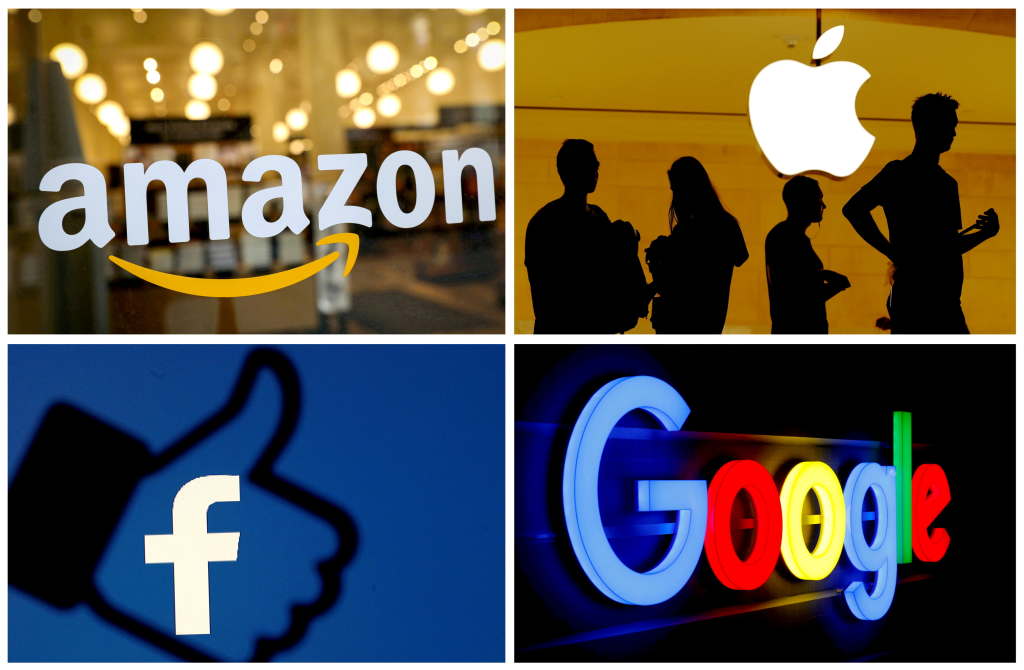The rise of Mega corporations: Apple, Google, Twitter, Amazon, and Facebook

Introduction
In today’s digital age, a new breed of corporate entities has emerged, commanding unprecedented power and influence over various aspects of our lives. These entities, known as mega corporations, have revolutionized industries and transformed the global business landscape. In this blog, we will delve into the rise of mega corporations, focusing on four prominent examples: Apple, Google, Twitter, Amazon, and Facebook. We will explore their histories, business models, and the profound impact they have had on the world.
Apple
Apple, founded by Steve Jobs, Steve Wozniak, and Ronald Wayne in 1976, has become synonymous with innovation and sleek design. Initially known for its personal computers, Apple expanded its product line to include devices such as the iPhone, iPad, MacBooks, and Apple Watch. Apple’s business model centers around hardware sales, software services, and digital content distribution through platforms like the App Store.
Apple’s products have had a significant impact on multiple industries, including mobile communication, music, and computing. The introduction of iconic devices like the iPhone revolutionized the smartphone market and spurred the development of a thriving app ecosystem. Apple’s emphasis on user experience and integration between its hardware and software has garnered a loyal customer base.
As one of the most valuable companies in the world, Apple’s influence extends beyond its product offerings. The company has pioneered retail store experiences and established a strong ecosystem through services like Apple Music, Apple Pay, and iCloud. Furthermore, Apple’s focus on privacy and data security has shaped industry standards and consumer expectations.
Google’s journey began as a humble search engine founded by Larry Page and Sergey Brin in 1998. Over the years, it evolved into a technology giant, offering a wide range of products and services. Google’s search engine algorithm, coupled with its relentless focus on innovation, propelled it to the forefront of the digital revolution. Today, Google dominates the online advertising market, leveraging its vast user base and sophisticated targeting capabilities.
Twitter, established in 2006, introduced a novel form of microblogging that revolutionized real-time communication. With its simple and concise format, Twitter quickly gained popularity as a platform for sharing news, opinions, and updates. Its business model revolves around targeted advertising and data monetization. Twitter has played a pivotal role in shaping public discourse, enabling individuals and organizations to engage in conversations on a global scale.
Amazon
Amazon, founded by Jeff Bezos in 1994 as an online bookstore, rapidly expanded its operations to become the world’s largest online marketplace. With its customer-centric approach and relentless pursuit of convenience, Amazon disrupted traditional retail and transformed the e-commerce landscape. Its business model focuses on retail, cloud computing services, and content streaming. Amazon’s impact on logistics, supply chain management, and consumer behavior is unparalleled.
Mark Zuckerberg’s creation, Facebook, emerged from a Harvard dorm room in 2004 and has since become the dominant force in social networking. With its user-friendly interface and extensive reach, Facebook connected billions of people across the globe. Facebook’s business model revolves around targeted advertising and data-driven insights. It has fundamentally changed the way we interact, share information, and consume media.
Conclusion
The rise of mega corporations like Google, Twitter, Amazon, and Facebook has reshaped the global business landscape and profoundly impacted society. These companies have revolutionized industries, transformed communication, and influenced consumer behavior on a massive scale. Their success can be attributed to their innovative business models, strategic acquisitions, and relentless focus on user experience. However, the future of mega corporations is uncertain. While they may continue to expand and consolidate their power, they also face challenges from emerging competitors and potential government regulation.
In addition to the four mega corporations discussed in this blog, there are several others worthy of mention, including Microsoft, and Netflix. The phenomenon of mega corporations is a multifaceted issue shaped by technological advancements, globalization, and government policies.
It is worth noting that GradeSmiths A Professional Essay Writing & Editing Services can assist individuals in crafting high-quality written content on a wide range of topics. Their expertise ensures that complex subjects, like the rise of mega corporations, can be effectively explored and presented.



